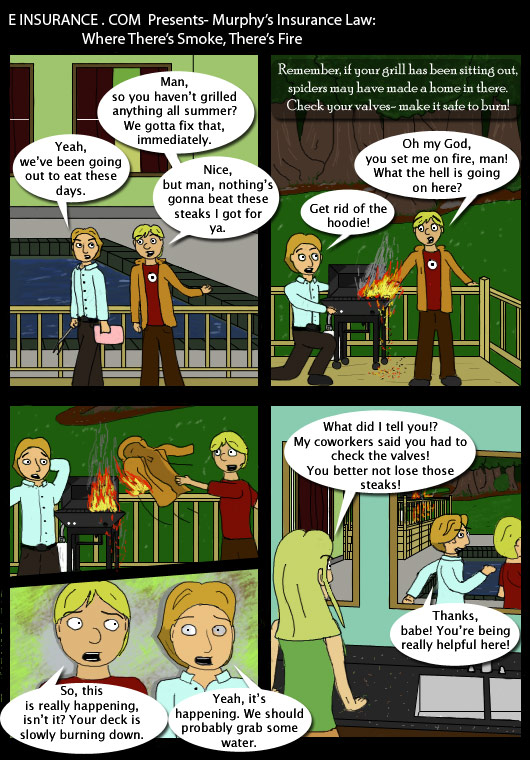
|

Keep Home Insurance Premiums Low With These 10 Fire Prevention Tips
EINSURANCE.comTM
One of the most frequent homeowner’s insurance claims is fire damage. According to statistics from the National Fire Protection Association fire departments responded to 362,500 home structure fires with a direct cost of $7.6 billion in 2009. Cooking equipment was the leading cause and two-thirds of the homes didn’t have smoke alarms installed. You can avoid becoming a statistic and lower your homeowner’s insurance costs with these fire safety tips.
- Test your smoke detectors and install fresh batteries in all units. Experts recommend doing a test monthly and replacing smoke detectors every 10 years. Clear away any dust or cobwebs that may have accumulated on or around the units. Make certain everyone in your home knows what the smoke alarm sounds like and what to do when they hear the alarm. Smoke alarms may qualify you for a discount on your homeowner’s insurance, too.
- Test your home fire extinguishers. Check the locking pin and tamper seal. If they are missing or damaged, replace the unit. Inspect the nozzle and hose assembly for any deterioration. Finally, turn the unit upside down to break up the powder that compacts over time. Make sure everyone in your home knows where fire extinguishers are stored and how to use them properly.
- Check the cords and plugs on electric appliances. Professionally repair any frayed or damaged cords or replace the appliance.
- Don’t overload electrical outlets.
- Change or clean furnace and air-conditioning filters frequently.
- Use your canister vacuum cleaner to remove built-up lint from your gas or electric clothes dryer.
- Clean up the dust bunnies that collect around your water heater.
- Remove any flammable materials stored near water heaters, furnaces and dryers. That includes newspapers, rags, cans of paint and cleaning solutions.
- Before you fire up the gas grill, inspect the vents, hoses and gas lines. Spiders like to nest in these areas and can clog the lines, creating a fire hazard.
- Substitute generic drugs for brand-name drugs whenever possible.
- Avoid using emergency rooms for non-emergencies. If possible, wait till you can get in to see your regular doctor. If you can't wait, consider going to an urgent care facility for non-life-threatening events, instead of a more costly ER.
|

|








